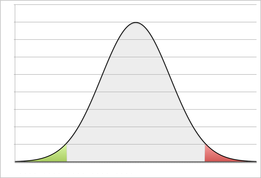|
Since entering chiropractic college in 1984, I have been engaged in an ongoing process of developing and refining my own theory of health which is based on the concepts of function and well-being. When the systems of the body are functioning at their highest capacity and a presiding sense of satisfaction and well-being describes one’s condition of mind, a state of optimal health has been attained. When any of the body’s systems are functioning at very low capacity (or has ceased to function at all) there is disease. But in-between these extremes lie infinite variations in the level of physiological function and well-being, infinite degrees of health. Health, in my perspective, is something best understood not in dualistic terms ('sick' or 'healthy'), but as a continuum.
The optimal conditions for health seem to include: low or manageable stress levels, relatively low body fat percentage (under 15% for men, under 20-25% for women, depending on body type), good energy, sound sleep, effortless digestion, clarity of mind, habits of healthy eating and exercise, and the strength and endurance to be able to perform life’s tasks and activities easily and well. When one is at a high level of function a degree of good health is evident. But how many of us can say that their stress levels are truly as low as we need them to be? How many of us feel tired a lot of the time? Are healthy eating and exercise your daily habits? How about your waistline? When our lives become too busy for us to ever feel caught-up with our obligations, when we realize that it has been months or years since we engaged in regular exercise or physical play, when a truly great night’s sleep is an exception rather than the rule, when we find ourselves choosing the elevator over the stairs just to go up one or two flights, something has gone wrong. We may not have a diagnosable disease, but our level of function and well-being (our health) has been diminished.
0 Comments
Leave a Reply. |
AuthorArchives
August 2021
Categories
All
|



 RSS Feed
RSS Feed